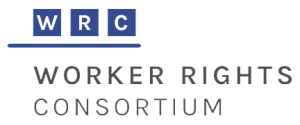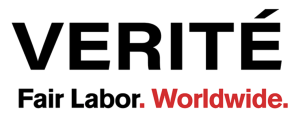This is the second in a series of blogs exploring the UNGPs 10+ roadmap through the perspectives of our partners. You can read the introduction here.
—
The first Action Area identified in the UNGPs 10+ is “UNGPs as a Compass for Meeting Global Challenges” This broad category speaks to the need to embed business respect for human rights into efforts to meet the countless other challenges facing the world.
Phil Bloomer from the Business and Human Rights Resource Center speaks to how these additional challenges widen the vulnerable population and create more opportunities for exploitation, and how the global community must center human rights in our efforts to mitigate the damage and rebuild.
 “The wicked combination of climate breakdown and pandemic are driving many more people into poverty and distress, leaving them more vulnerable to human traffickers and forced labour. The next ten years of the UN Guiding Principles will be critical. These international standards must spur the creation of regulation and business incentives that will transform markets, and corporate and investor behavior so that they deliver both shared prosperity and climate security. The elimination of forced labour will be one of the first litmus tests of our success. Humanity United’s leadership is more critical than ever.”
“The wicked combination of climate breakdown and pandemic are driving many more people into poverty and distress, leaving them more vulnerable to human traffickers and forced labour. The next ten years of the UN Guiding Principles will be critical. These international standards must spur the creation of regulation and business incentives that will transform markets, and corporate and investor behavior so that they deliver both shared prosperity and climate security. The elimination of forced labour will be one of the first litmus tests of our success. Humanity United’s leadership is more critical than ever.”
Rola Abimourched from the Worker Rights Consortium points to the UNGPs 10+ goal to “enhance collective action” as an absolute must, especially following the damage done by the pandemic.
 “The pandemic laid bare the vast inequities that define global manufacturing supply chains. It also made them worse. Millions of workers are fighting wage theft, illegal firings, and violent suppression of unions, all rampant over the last two years at factories producing for leading brands and retailers. Workers’ pursuit of justice through collective action needs urgent support – and must be bolstered by parallel efforts to hold brands and retailers accountable for abuses in their supply chains.”
“The pandemic laid bare the vast inequities that define global manufacturing supply chains. It also made them worse. Millions of workers are fighting wage theft, illegal firings, and violent suppression of unions, all rampant over the last two years at factories producing for leading brands and retailers. Workers’ pursuit of justice through collective action needs urgent support – and must be bolstered by parallel efforts to hold brands and retailers accountable for abuses in their supply chains.”
This action area also includes the need to embed human rights protections in our global approach to digital technology and communication. Fair/Square shares an example of the consequences for workers who do not have these protections, and shines a light on why this work must be done soon.
 “As the 2022 World Cup in Qatar draws nearer, fans and journalists looking for accurate information about the human rights situation in the country should be able to look to social media to understand the realities for migrant workers and others. But they are likely to be disappointed: earlier this year Malcolm Bidali, a human rights defender and blogger who wrote powerfully about his experience as a migrant worker in Qatar under the pseudonym “Noah Articulates”, was arrested by state security officers, held in an unknown location for nearly a month, and then deported from the country.
“As the 2022 World Cup in Qatar draws nearer, fans and journalists looking for accurate information about the human rights situation in the country should be able to look to social media to understand the realities for migrant workers and others. But they are likely to be disappointed: earlier this year Malcolm Bidali, a human rights defender and blogger who wrote powerfully about his experience as a migrant worker in Qatar under the pseudonym “Noah Articulates”, was arrested by state security officers, held in an unknown location for nearly a month, and then deported from the country.
Malcolm’s treatment has had a chilling effect on freedom of expression in the country and suggests that it is not safe to use social media as a migrant activist in Qatar. As governments and businesses look at how they turn the UNGPs into reality, protecting human rights advocates who use digital platforms must be a top priority.”
Finally, the fourth goal in this action area focuses on “coherence and alignment in standards development” which Shawn MacDonald from Verité says is an area we could learn a critical lesson from environmental policy.
 “The second decade of the UNGPs coincides with a genuine inflection point in supply chain accountability as those with real economic power – trade officials, investors, regulators, procurers – are finally starting to see the potential to use their leverage to demand more from companies. Yet, calls for even mandatory due diligence on forced labor and other human rights abuses won’t make much difference if there are not genuine, standardized metrics for corporate performance that are impact-based.
“The second decade of the UNGPs coincides with a genuine inflection point in supply chain accountability as those with real economic power – trade officials, investors, regulators, procurers – are finally starting to see the potential to use their leverage to demand more from companies. Yet, calls for even mandatory due diligence on forced labor and other human rights abuses won’t make much difference if there are not genuine, standardized metrics for corporate performance that are impact-based.
Policy pronouncements and due diligence efforts are merely tools to achieve better labor conditions, not effective metrics themselves. The “S” in ESG can indeed be measured in improvements in wages, measurably better safety conditions, transparent migrant worker recruitment systems, more unionized workplaces, etc.
We no longer have patience for companies that merely claim they are against global warming; we demand real target reductions in carbon footprints, changes in materials use, and the like. Let’s ensure that the UNGP and other platforms for corporate accountability take the leap to embedding metrics that reflect exactly what we expect to see in supply chains free of labor exploitation.”
Our next post in this series will look at the second and third action items, which are focused on the responsibility of governments to protect workers from exploitation, and the responsibility of businesses to include human rights due diligence in their business models.
You can view the blog series landing page here, updated as new posts are published.




